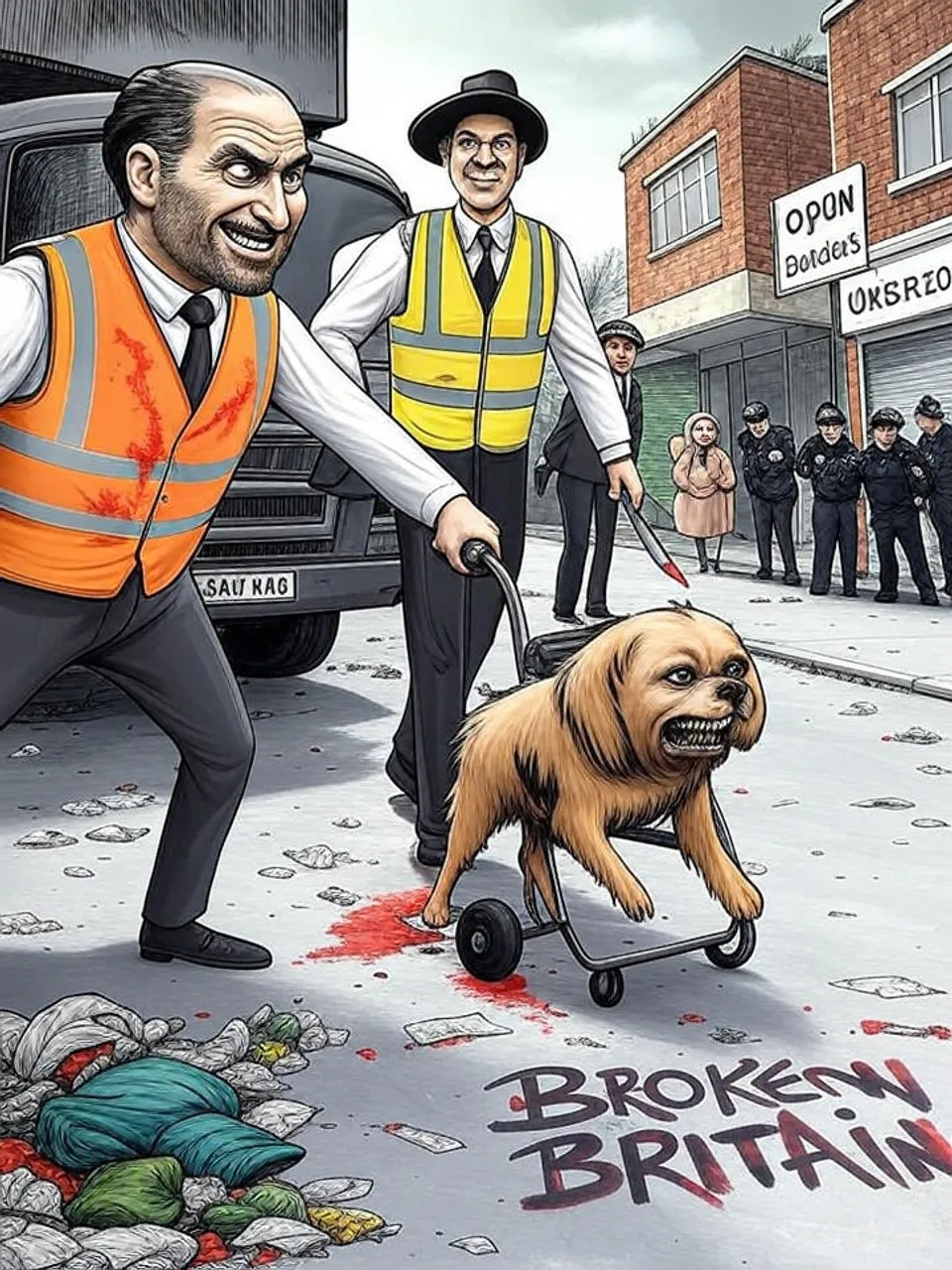A Binman's Fatal Intervention in Uxbridge

Stabbing exposes migration strains in west London suburb
A 49-year-old refuse collector dies halting a knife attack by an undocumented Afghan lodger. The incident underscores unchecked migration's role in suburban violence and eroding community safety.
Wayne Broadhurst, a 49-year-old binman from Uxbridge, died on Monday after stepping into a street altercation to protect neighbors. The 22-year-old Afghan suspect, who entered the UK hidden in a truck six months ago, stabbed three people, including a 14-year-old boy. Official reports name the victim but omit details on the suspect’s legal status or prior interactions with authorities.
Emergency services arrived at Midhurst Gardens around 5pm. Police tasered the suspect after he refused five commands to drop his knife. Witnesses described chaos: young men fleeing, sirens blaring, officers providing immediate medical aid to victims.
Broadhurst worked as a refuse collector and walked his dog daily in the neighborhood. Neighbors called him gentle and peaceful, the last person targeted in violence. He left behind a wife, to whom locals delivered flowers and shortbread in shock.
The suspect lodged with the 45-year-old victim, who suffered life-changing injuries. This domestic connection turned public when the fight spilled onto the street. Floral tributes now mark the scene, one noting the area’s recent decline.
Knife crime in London rose 20% in the year to September 2024, per Metropolitan Police data. West London recorded 1,200 such incidents, up from 950 two years prior. Uxbridge, once a quiet suburb, fits this pattern of escalating urban violence.
Afghan nationals form one of the largest irregular migrant groups in the UK. Home Office figures show 8,000 small boat and lorry arrivals from Afghanistan since 2022, with asylum approval rates at 70%. Many enter without documentation, straining local resources.
Integration programs lag behind arrivals. The government’s 2023 plan allocated £150 million for English classes and employment support, yet only 40% of recent migrants access them, according to Migration Observatory reports. Isolated lodgers like the suspect often drift into under-policed communities.
This stabbing echoes prior cases. In 2023, a Birmingham man died intervening in a fight involving undocumented migrants. Similar incidents in Manchester and Leeds highlight a recurring risk: ordinary citizens exposed to unchecked conflicts.
Police response times in outer London averaged 12 minutes for violent calls in 2024, down from 9 minutes a decade ago. Budget cuts reduced officer numbers by 20,000 since 2010. Tasers de-escalated this event, but broader deterrence fails.
Communities bear the cost. Trust in policing fell to 55% in suburban areas, per 2024 British Social Attitudes survey. Residents avoid interventions, fearing reprisal, as Broadhurst’s death demonstrates.
Immigration policy prioritizes arrivals over assimilation. Successive governments since 1997 expanded entry routes without matching enforcement or support. Labour’s 2024 border plans promise controls, yet lorry crossings persist, mirroring Tory-era failures.
The 45-year-old victim’s home became a flashpoint. Lodging arrangements, common in high-migration zones, mix strangers without oversight. Hillingdon Council’s housing waitlist hit 15,000 this year, pushing informal setups.
Broader social cohesion erodes. ONS data shows violent crime victimization 25% higher in diverse wards with rapid migrant influxes. Uxbridge’s population grew 10% since 2011, largely from non-EU sources, outpacing integration efforts.
Institutions deflect responsibility. Home Office statements focus on arrests, not systemic entry flaws. Local councils cite funding shortages, while police logs bury patterns in daily reports.
Broadhurst’s routine dog walk ended in death because policy gaps turned a lodger’s dispute into public peril. This reveals Britain’s core dysfunction: migration volumes exceed capacity, fostering isolated violence that claims bystander lives. Suburbs like Uxbridge no longer shield citizens from the state’s unresolved failures.
Commentary based on Dog walker, 49, who died in Uxbridge stabbing named after Afghan national 'who came to UK in truck' arrested by Chay Quinn on LBC.